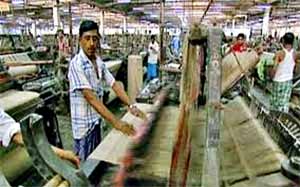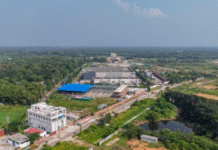Bangladesh shows the paradox with higher a growth rate in recent years while job creation remains scare raising the question why economic growth is failing to reflect its presence in the job markets.
The Centre for Policy Dialogue (CPD) made the disclosure in a pre-budget press conference on Wednesday last in the city saying the economy has failed to create adequate jobs when the government is claiming continued higher GDP growth in the past several years.
The experts’ think-tank said the economy is estimated to register 7 percent growth in the outgoing fiscal 2015-16 largely supported by the pay hike of public employees, after maintaining more than 6 percent growth in the past decade.
But the economic growth, particularly since 2013, could not result in enough job creation, it said wondering that revenue expenditure is going more to non-productive sectors like payment to higher pay scale and this may be one of the reasons for failure to create enough jobs despite higher budgetary public expenditure..
The CPD said the number of jobs rose impressively during 2002-2013, by 13.6 lakh per year. But it appears to have fallen to only three lakh a year since 2013. as per data on latest labour force presented by Bangladesh Bureau of Statistics.
The number of jobs declined by 12 lakh in the manufacturing sector in two years since 2013, said Towfiqul Islam Khan, a research fellow of CPD at a press briefing at Cirdap auditorium in Dhaka.
“We have to think about the GDP growth that does not ensure enough job creation to benefit the greater section of the society,” CPD’s senior Fellow Debapriya Bhattacharya said in this connection.
He said the economy is expected to get rid of the 6-percent-plus growth trap at a time when the private sector investment declines as percentage of gross domestic product and tax collection remains low.
The rate of job creation and labour productivity have also declined although various factors such as inflation, bank interest rate on loans, balance of payments position and exchange rates remain favourable for economic growth, the CPD said. Impressive economic performance since the early 2000s was accompanied by strong growth in labour force up to 2013. But, this trend is currently showing signs of stagnation.
“In light of impressive GDP growth, sluggish labour market growth and an emerging demographic dividend provide causes of concern.” The government should pay attention to raising private investment and jobs through budgetary measures in the coming fiscal year, the CPD said.
It also called for increased allocation for social sectors, particularly education and health. Bangladesh ranks 155th out of 161 countries and 189th out of 190 countries in public spending as percentage of GDP on health and education.
The CPD said the unemployment rate for educated labour force, particularly for those having secondary and higher secondary education, has increased significantly but has fallen for uneducated workers and jobseekers.
This regressive trend is a major concern for a country seeking to maintain the status of a middle-income country, it added.
Bhattacharya said education is not giving guarantee of employment. Most of the unemployed people have higher secondary education. He said the outgoing fiscal year will be marked as a year of high growth but four indicators, including the decline in private investment as percentage of GDP and job creation, have created a ‘dialectical situation’.
“It is the major contradiction of Bangladesh economy. So, only high growth will not be enough, its quality and sources are important,” Bhattacharya said.
The CPD said the role of private investment in GDP growth becomes rather weak. The investment growth in manufacturing sector remains sluggish particularly because of a lack of adequate infrastructure, including the supply of quality electricity and gas.
New investment in the apparel sector, which accounts for 48.3 percent of manufacturing sector has also been slow.
Citing a statistical modelling, CPD said private investment in Bangladesh would more than double had its law and order situation been like that of India.
“Thus the rule of law emerges as a very significant factor in upward drive of private investment which in turn is quite crucial to ensuring high growth,” the CPD said.
On the budget for next fiscal year, the CPD demanded making projection of revenue and expenditure in a realistic manner, saying the gap between the two is widening.
The think-tank suggested a 2-3 year plan to implement the VAT and Supplementary Duty Act 2012 in a realistic and staggered manner as there is opposition from businesses.
It said prices of some items such as electricity and steel will go up for the imposition of 15 percent value added tax. These two items currently enjoy reduced rates.
The CPD favours the new law that aims to automate the VAT system but capacity of small and medium enterprises needs to be enhanced for the implementation of the law.
CPD Executive Director Mustafizur Rahman said the government should keep the VAT rates at a low for some items as the impact of the indirect tax falls on common people. The existing law provides scope for VAT exemption in some service sectors.
“We suggest keeping VAT rates reduced in some areas in socio-economic and industrial context,” he said. The focus should be on collecting more income tax.
The CPD has recommended reduction of prices of diesel and kerosene, saying the recent cuts in prices of oil favoured the richer section of the society. It stressed the need for an agricultural price commission to ensure fair prices for growers and an independent financial sector reform commission to identify problems in the sector.
Repeated recapitalisation of state-owned banks by people’s tax is difficult to justify when the state can’t provide adequate support to the poorest and marginalised sections due to scarcity of resources, the CPD said.
Source: Weekly Holiday










